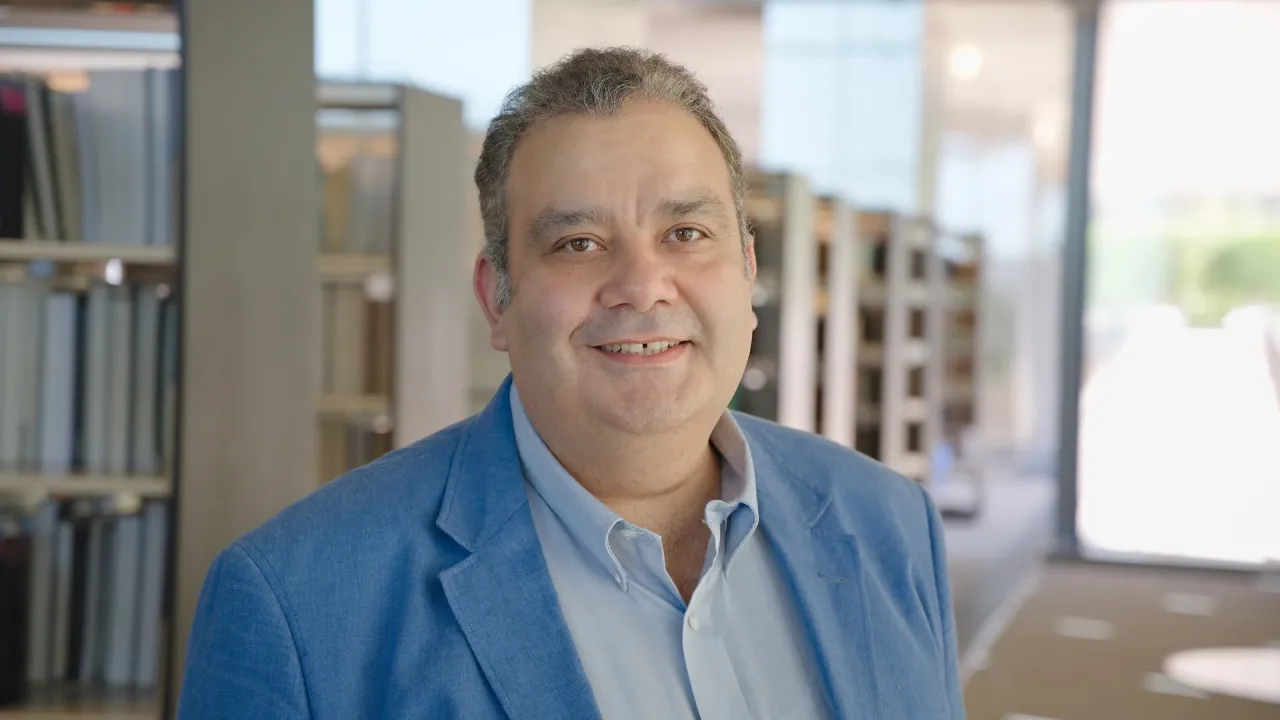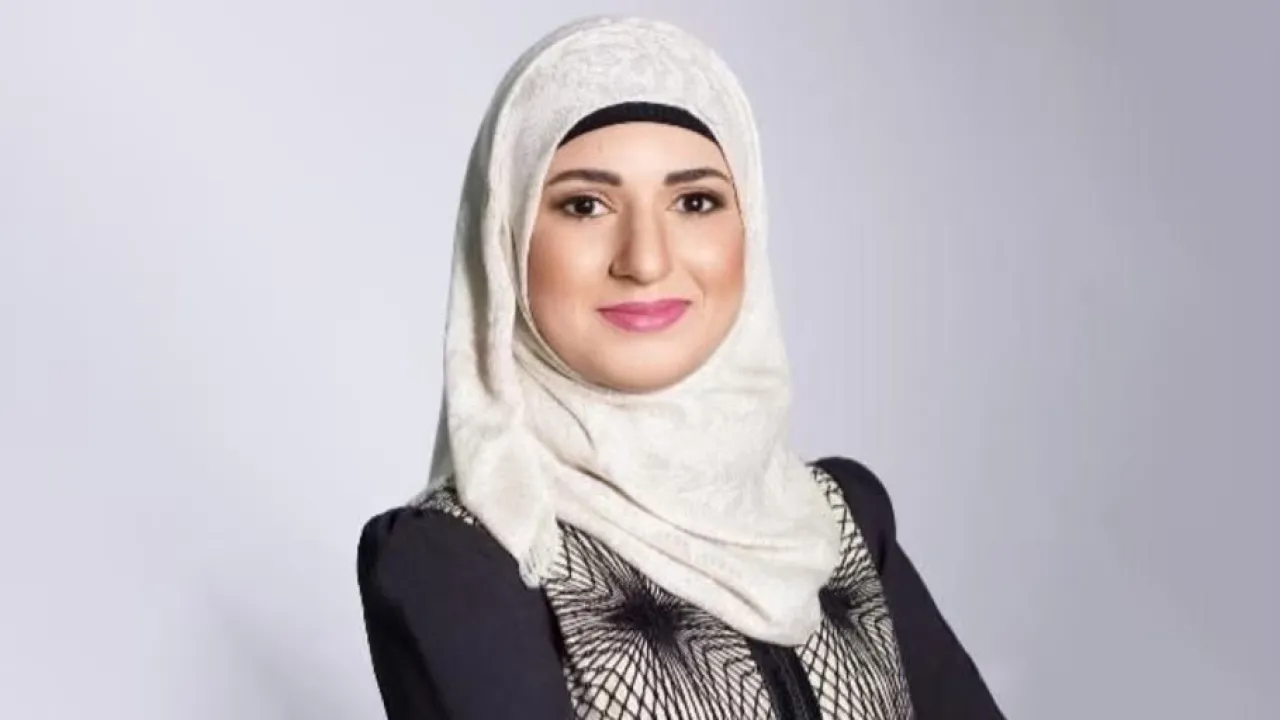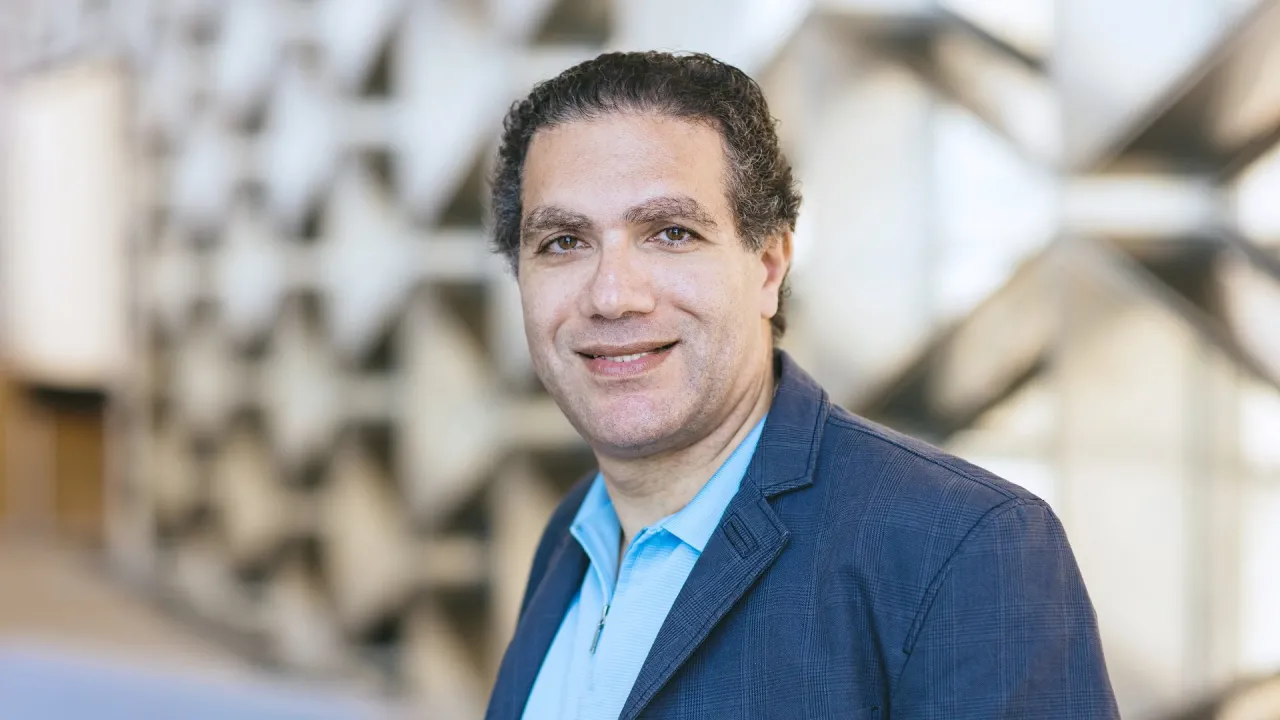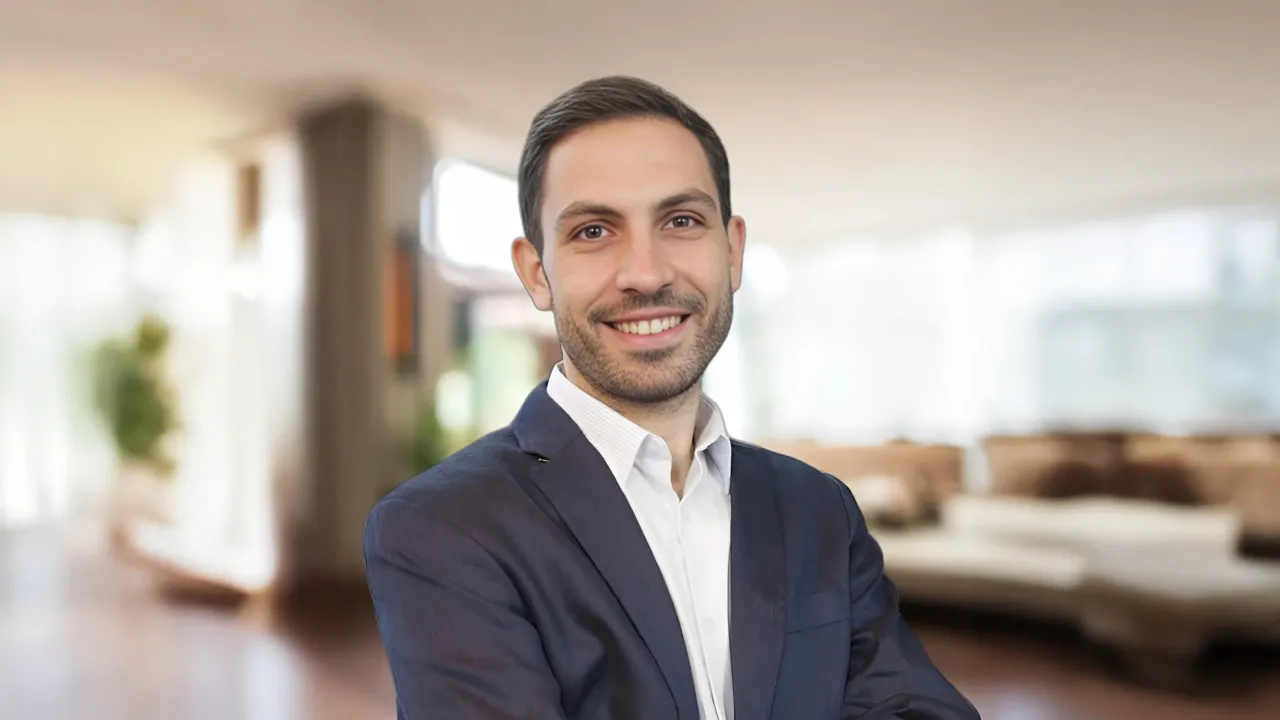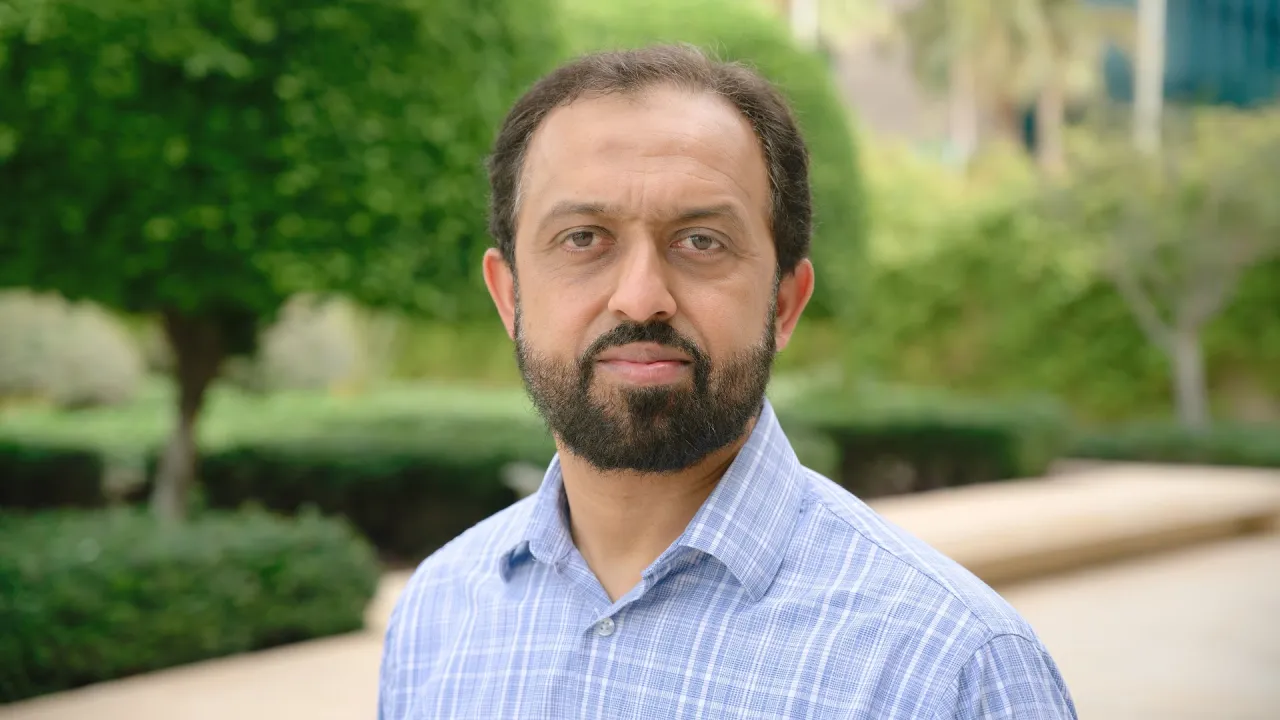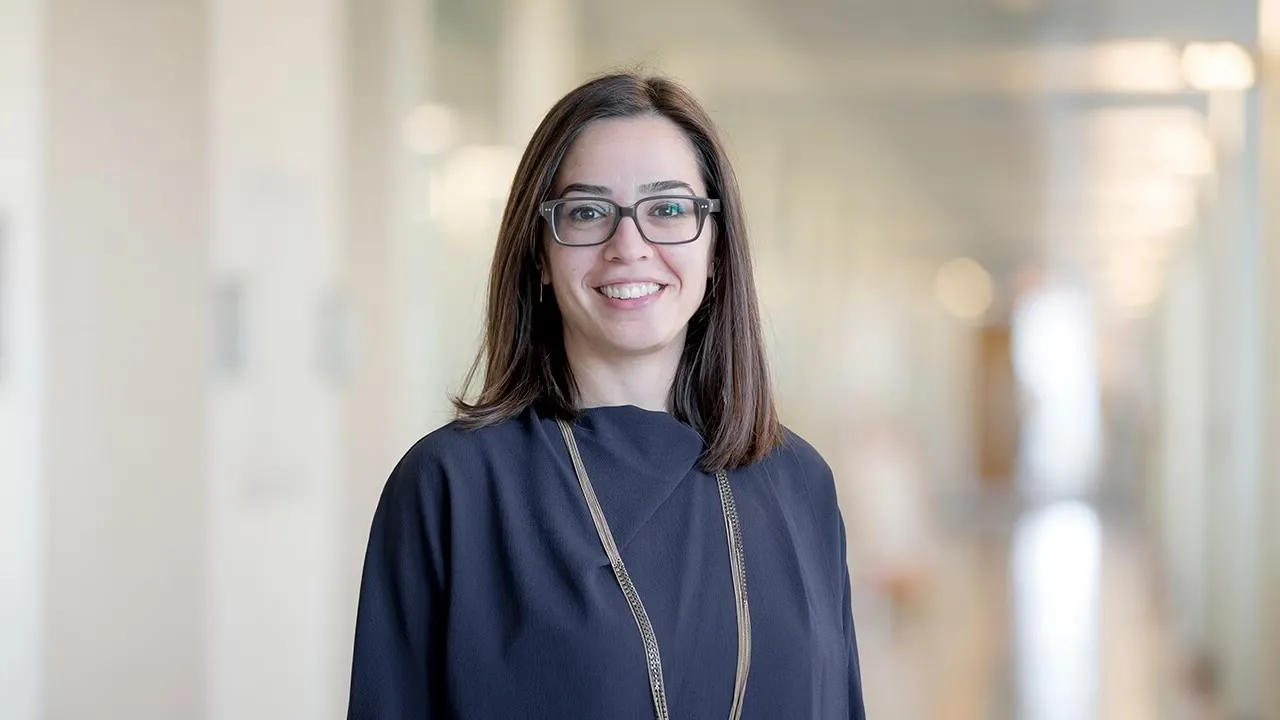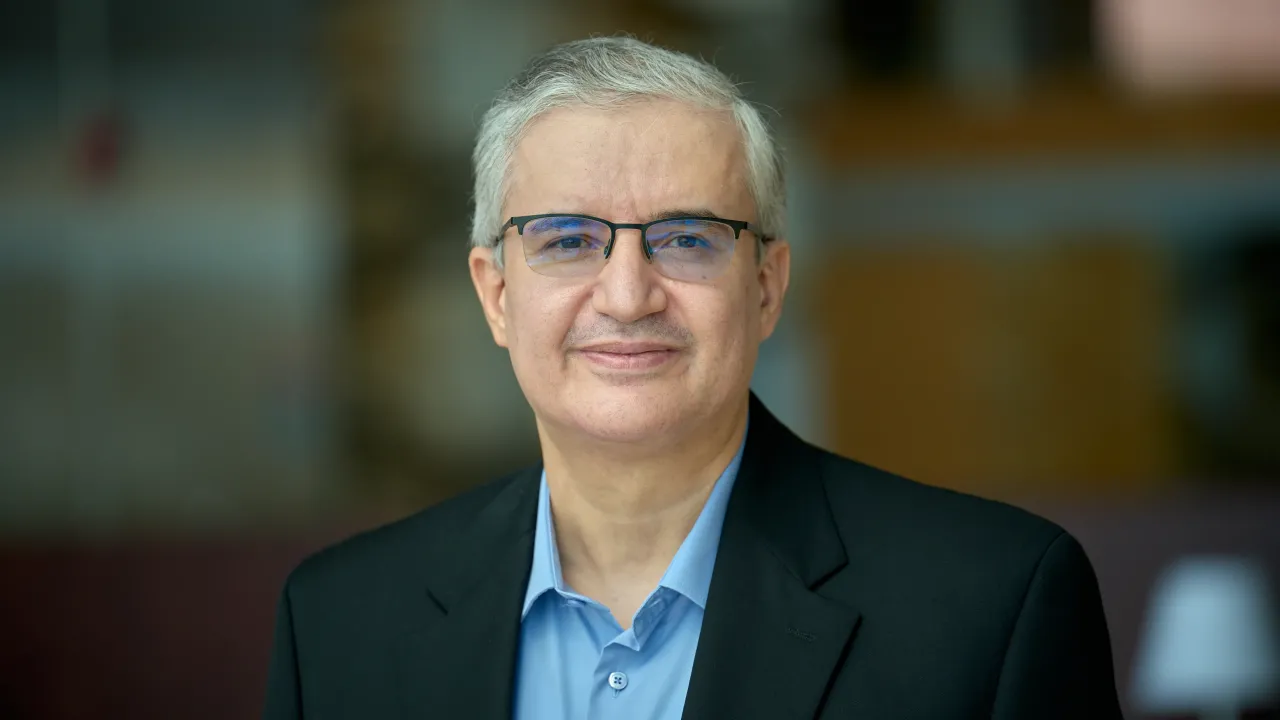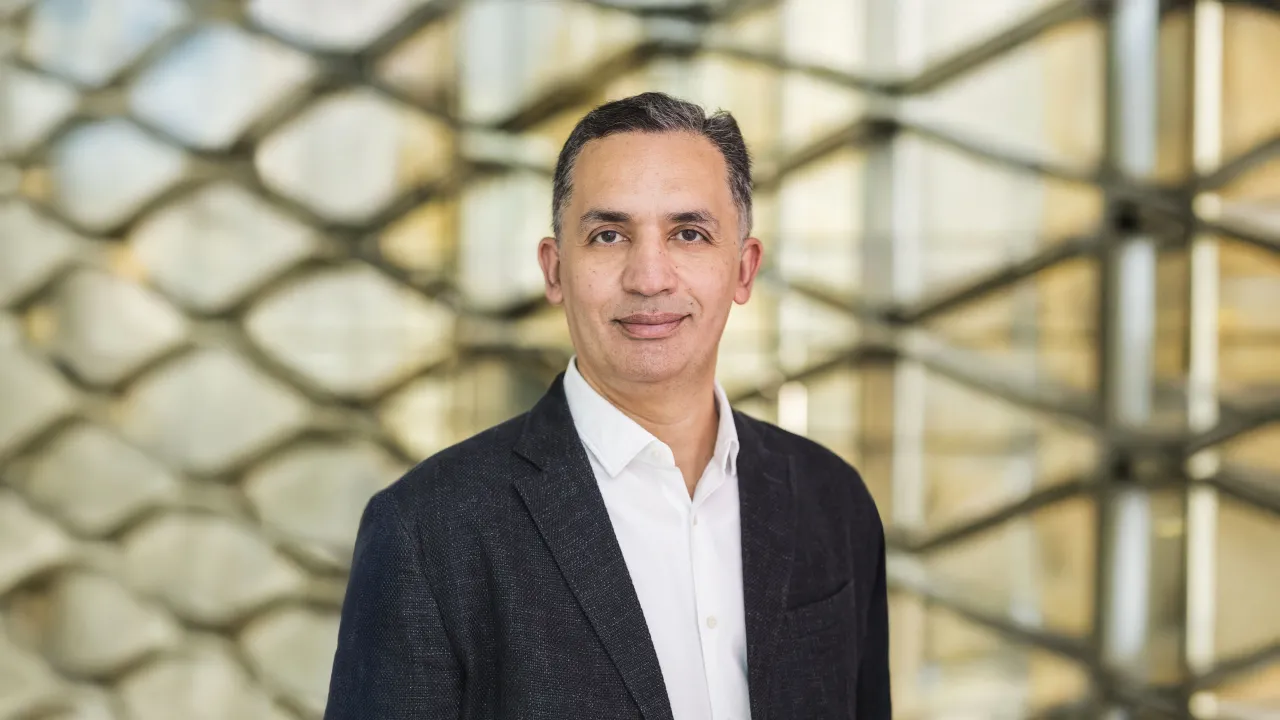
Internet of Things, Cyber-Physical Systems and Smart Cities
The ECE program's IoT, Cyber-Physical Systems & Smart Cities research focuses on developing innovative solutions for creating sustainable and resilient future cities. As part of this effort, advanced sensing technologies are being developed to collect and analyze data from the urban environment, enabling real-time monitoring and control of critical infrastructure.
Researchers are also exploring smart grid analytics and optimization, demand-side management, electric vehicle integration and energy-efficient communication technologies for smart cities.
Additionally, they are investigating the use of artificial intelligence and machine learning for intelligent transportation systems, traffic management and autonomous vehicles.
The program is also pioneering the development of ultra low energy IoT devices enabled by UAVs for monitoring extreme environments, enhancing the ability to gather critical data in challenging conditions.
Related People
Biography
Ahmed M. Eltawil is the Associate Dean for Research at the CEMSE Division and a professor in the Electrical and Computer Engineering Program at KAUST. He joined the Computer, Electrical and Mathematical Science and Engineering (CEMSE) Division in 2019. At KAUST, he founded and directs the Communication and Computing Systems Laboratory (CCSL). Previously, he was a faculty member in the Electrical Engineering and Computer Science Department at the University of California, Irvine (UCI), U.S., from 2005 to 2019.
His research at the CCSL at KAUST focuses on efficient architectures for computing and communications systems, with an emphasis on wireless systems. His research spans several application domains, including low-power mobile systems, machine learning platforms, sensor networks, body area networks, and critical infrastructure networks.
An active participant in the academic community, Eltawil has served on the technical program and steering committees for numerous workshops, symposia and conferences focused on low-power computing and wireless communication system design. He is a recipient of several prestigious awards and grants, including the NSF CAREER grant for his research in low-power computing and communication systems.
He is a Senior Member, Distinguished Lecturer (2023/24) of the IEEE, and a Senior Member of the National Academy of Inventors. In 2021, he was recognized as "Innovator of the Year" by the Henry Samueli School of Engineering at UCI and received two US Congressional Recognition Awards for his pioneering work in wireless systems. Committed to a collaborative, multidisciplinary approach, Professor Eltawil is passionate about translational research, aiming to move practical innovations from the lab to societal applications.
Research Interests
Professor Eltawil’s current research focuses on efficient architectures for computing and communications systems and wireless networks, encompassing low-power mobile systems, machine learning platforms, sensor networks, body-area networks, and critical infrastructure networks.
His research examines the larger context of connected systems where devices seamlessly integrate into our daily lives. His approach to research combines rigorous analysis with a robust experimental background that leverages insights obtained through simulations and corroborated by experiments. By finding innovative solutions to research problems, he aspires to offer practical approaches that can be readily adopted, resulting in significant societal benefits.
Education
Biography
Nazek El-Atab is an assistant professor of Electrical and Computer Engineering (ECE) and the principal investigator of the Smart, Advanced Memory Devices and Applications (SAMA) Lab. El-Atab joined the University in October 2017, having obtained her B.Sc. in computer and communications engineering in 2012 from Hariri Canadian University, Lebanon, and her M.Sc. in microsystems engineering in 2014 and Ph.D. in interdisciplinary engineering in 2017 from the Masdar Institute of Science and Technology, UAE, under a cooperative program with MIT, and funded by the US Office of Naval Research.
At KAUST, El-Atab has worked on several high-impact research projects focusing on designing and fabricating futuristic electronics. Her current research interest focuses on the design and development of smart multifunctional devices including in-memory sensing and computing, 4D printing of actuators with self-sensing capability, among others.
El-Atab is a Senior IEEE Member and currently serves as the Chair of the Western Saudi Arabia IEEE Electron Device Society Chapter. She is an IEEE Electron Devices Society Distinguished Lecturer. She is an associate editor-in-chief at Applied Nanoscience (Springer Nature) and associate editor at the Nano Select by Wiley and Microelectronics Engineering by Elsevier. She has published over 100 papers in international peer-reviewed scientific journals and conference proceedings, authored two book chapters, two books and holds seven filed U.S. patents.
El-Atab has received several significant awards for her research, including the 2015 For Women in Science Middle East Fellowship by L’Oreal-UNESCO, the 2017 International Rising Talents Award by L’Oreal-UNESCO, and was portrayed among the 2019 “Remarkable Women in Technology” by UNESCO. Prof. El-Atab was also selected to participate in the 70th Lindau Nobel Laureate Meeting in Germany, was selected among the 2020 UC Berkeley EECS Rising Stars, among the 10 Innovators under 35 by MIT Technology Review Arabia in 2020, among the V60 Women in Sustainability by BCG, and as a “NEOM Changemaker” in 2021.
Her research has been extensively covered in various international publications, including IEEE Spectrum, National Geographic, BBC, MIT Technology Review, and Sky News Arabia.
Research Interests
Professor El-Atab’s current research focuses on designing and developing innovative smart memory electronic devices for futuristic in-memory sensing and computing applications. El-Atab and her team aim to enhance an increasingly digitized world for emerging applications like artificial intelligence, IoT and augmented reality.
Education
Biography
Professor Salama received his B.S. (Hons.) degree from Cairo University, Egypt, in 1997. He obtained his M.S. and Ph.D. degrees in electrical engineering from Stanford University, U.S., in 2000 and 2005, respectively.
The principal investigator of the KAUST Sensors Lab, Salama joined the University in 2009. From 2009 to 2011, he served as the founding program chair for Electrical Engineering at KAUST. Before joining KAUST, he worked as an assistant professor at Rensselaer Polytechnic Institute, U.S., from 2005 to 2009.
Dr. Salama—a senior member of the Institute of Electrical and Electronics Engineers (IEEE)—has authored 360 articles and holds 50 patents on low-power mixed-signal circuits for intelligent, fully integrated sensors and nonlinear electronics, particularly memristor devices.
His work on complementary metal-oxide semiconductor (CMOS) sensors for molecular detection has been funded by the National Institutes of Health (NIH) and the Defense Advanced Research Projects Agency (DARPA). He is also the co-founder of Ultrawave Labs, a biomedical imaging company.
Salama received the Stanford-Berkeley Innovators Challenge Award in Biological Science.
Research Interests
Professor Salama’s research interests cover various interdisciplinary aspects of electronic circuit design and semiconductor fabrication. He is actively engaged in developing devices, circuits, systems and algorithms to enable inexpensive analytical platforms for a variety of industrial, environmental and biomedical applications.
Salama’s most recent research has focused on developing neuromorphic circuits for brain emulation.
Education
Biography
Charalambos (Harrys) Konstantinou is currently an Associate Professor of Electrical and Computer Engineering (ECE) and an Affiliate Professor of Computer Science (CS) with the Computer, Electrical and Mathematical Science and Engineering Division (CEMSE), King Abdullah University of Science and Technology (KAUST), Thuwal, Saudi Arabia. He is the Principal Investigator (PI) of the Secure Next Generation Resilient Systems Laboratory (SENTRY), a co-PI of the Advanced Grid Laboratory for Cyber-Physical Energy System Applications (ANGLE) Group at KAUST, and also affiliated to the Center for Renewable Energy & Storage Technologies (CREST), KAUST. He received the M.Eng. degree in ECE from the National Technical University of Athens (NTUA), Greece, and the Ph.D. degree in Electrical Engineering from New York University (NYU), NY, USA. Before joining KAUST, he was an Assistant Professor with the Center for Advanced Power Systems (CAPS), Florida State University (FSU). His research interests include critical infrastructures security and resilience with special focus on smart grid technologies, renewable energy integration, and real-time simulation. He is a Senior Member of IEEE, and currently serving as Associate Editor of IEEE Transactions on Smart Grid (TSG) and IEEE Transactions on Power Systems (TPWRS).
Research Interests
Professor Konstantinou's research focuses on critical infrastructure security and resilience, with a specialization in smart grid technologies, renewable energy integration and real-time simulations. His SENTRY Lab investigates the cybersecurity and resilience of industrial control systems, critical power grid infrastructure and embedded systems.
The lab employs a "red team/blue team" approach, where researchers act as attackers ("red team") to test the defenses developed and deployed by the "blue team," who respond to the simulated intrusions.
Using this concept, SENTRY researchers design adaptive modeling methods, monitoring schemes and control algorithms to detect, prevent and mitigate the risk of cyberattacks, especially in critical grid infrastructures.
The group's research aims to create secure and resilient computing systems by employing computer security fundamentals and cyber-physical engineering applications.
Education
Biography
Atif Shamim received his M.S. and Ph.D. degrees in electrical engineering from Carleton University, Canada, in 2004 and 2009, respectively. He was an NSERC Alexander Graham Bell Graduate Scholar at Carleton University from 2007 to 2009 and an NSERC Postdoctoral Fellow from 2009 to 2010 at the Royal Military College Canada and KAUST.
In 2006, he joined the VTT Micro-Modules Research Center (Oulu, Finland) as an invited researcher. In August 2010, he joined the Electrical and Computer Engineering (ECE) Program at KAUST, where he is currently a full professor, chair of the ECE Program, and principal investigator of the IMPACTS Lab.
His research work has earned numerous awards, including Best Paper Awards at IEEE ICMAC 2021, IEEE IMS 2016, IEEE MECAP 2016, and IEEE EuWiT 2008. He also received first prize in the IEEE IMS 2019 3MT Competition, the IEEE AP-S Design Competition 2022, and second prize in the IEEE IMS Design Competition 2024. Additionally, he was recognized with finalist or honorable mention awards in several prestigious competitions, including the IEEE AP-S Design Competition 2020 and the R.W.P. King Prize for journal papers in IEEE TAP 2017 and 2020. He has been selected as a Distinguished Lecturer for IEEE AP-S (2022–2024).
In addition to his research accolades, Professor Shamim’s work has been recognized for its broader impact across innovation, industry and entrepreneurship. He received the King’s Prize for the Best Innovation of the Year (2018) for his work on sensors for the oil industry. In 2008, he was honored with the Ottawa Centre of Research Innovation (OCRI) Researcher of the Year Award in Canada. His innovative Wireless Dosimeter earned the ITAC SMC Award at the Canadian Microelectronics Corporation TEXPO in 2007. He has also won several business-related honors, including first prize in Canada’s National Business Plan Competition and the OCRI Entrepreneur of the Year Award in 2010.
Professor Shamim has been actively involved in contributing to the IEEE community through various technical, editorial, and leadership roles. He is a Fellow of IEEE and founded the first IEEE AP/MTT chapter in Saudi Arabia (2013). He served on the editorial board of IEEE Transactions on Antennas and Propagation (2013–2019), as a Guest Editor for an IEEE AWPL Special Issue (2019), and as an Associate Editor for the IEEE Journal of Electromagnetics, RF and Microwaves in Medicine and Biology (2020–2024). He has also participated in several IEEE Technical Committees, including those on Antenna Measurements (AP-S), Microwave Controls (MTT-S 13), and Additive Manufacturing (CRFID).
He currently chairs the IEEE AP-S Technical Committee on Wireless Communication and serves as Vice Chair of the IEEE AP-S MGA Committee.
Research Interests
Professor Shamim's research focuses on innovative antenna designs and their integration strategies with circuits and sensors for flexible and wearable wireless sensing systems through a combination of CMOS and additive manufacturing technologies. Shamim is particularly interested in developing wearable wireless sensor systems to measure physiological parameters in real time.
Specific research interests include:
- Antenna-on-Chip (AoC) design, integration and efficiency enhancement strategies
- Reconfigurable Intelligent Surfaces (RIS)
Additive manufacturing (Inkjet, Screen, and 3D printing) - Wearable and disposable wireless sensors realized through printing technologies
- Mechanically flexible RF electronics and sensing systems
- Reconfigurable microwave components (magnetically controlled)
- Phase Change Materials (PCM) for low cost RF and mm-Wave switching applications
- Terahertz plasmonics antennas and their characterization techniques
Education
Biography
Professor Sahika Inal earned her B.Sc. in textile engineering from Istanbul Technical University in Turkey, followed by an M.Sc. in polymer science through a joint program offered by Humboldt University, Free University, the Technical University of Berlin, and the University of Potsdam in Germany. In 2013, she completed her Ph.D. in experimental physics at the University of Potsdam, where she focused on electronic polymer-based optical sensors for pathogen detection. After earning her doctorate, she conducted postdoctoral research at the Center of Microelectronics of Provence at the École Nationale Supérieure des Mines de Saint-Étienne in France, developing microelectronic devices for bioelectronic applications.
Since 2016, Professor Inal has led the Organic Bioelectronics Lab at KAUST. Her research explores mixed ionic and electronic charge transport in organic materials and the development of electronic devices that interface with biological systems for biosignal recording and stimulation. She currently serves as the program chair of the Bioengineering program at KAUST. She has received numerous awards, delivered more than 70 keynote and invited talks at major international conferences across 15 countries, published more than 135 articles, and holds 10 patent applications. Her innovative contributions advance the field of bioelectronics and open new possibilities for understanding and interacting with biological systems.
Research Interests
Professor Inal’s expertise lies in polymer science and bioelectronic devices. She specializes in the photophysics of conjugated polymers, characterization of polymer thin films, behavior of polymer films in aqueous environments, and the design of biosensors and actuators that incorporate conjugated polymers. Her current research focuses on ion and electron conduction in organic electronic materials and the design of bioelectronic devices capable of recording and stimulating biological signals.
By combining in-situ techniques to monitor ion and electron motion in films, fibers, and porous scaffolds of organic materials, her team aims to identify the best-performing materials, formulations, processing conditions, and form factors for use in biological electrolytes.
These optimized materials are then applied to build devices such as transistors, fuel cells, electrodes, electrochemical actuators, and drug-delivery systems that can sense or stimulate biological signals.
Education
Mohamed-Slim Alouini
- Al-Khawarzmi Distinguished Professor, Electrical and Computer Engineering
Biography
Throughout his 30-year academic career, Professor Mohamed-Slim Alouini, an IEEE, OPTICA, and SPIE Fellow, has developed analytical and simulation tools for evaluating the performance of radio-frequency and optical wireless communication systems. He has also designed and optimized innovative technologies for emerging wireless networks.
Professor Alouini, a co-founder of KAUST's ECE program, inspires future engineers through his pioneering work in wireless communications. His integrated space-air-ground networks, spectrum sharing schemes, and optical wireless communication systems research shape connectivity's future and embody KAUST's scientific excellence and global impact.
Professor Alouini has published numerous conference and journal papers and co-authored the textbook Digital Communication over Fading Channels, published by Wiley Interscience. A former editor of IEEE Transactions on Communications and IEEE Transactions on Wireless Communication, he also served as an editor for IEEE Transactions on Mobile Computing and the Wireless Communications and Mobile Computing journal. He was also a series editor for the IEEE Communication Magazine's Optical Communication and Networks Special Series and the founding field chief editor for the Frontiers in Communications and Networks journal. He is now the Founding Editor-in-Chief for the Nature Partnership Journal (npj) on Wireless Technologies (since 2025) and an editor for the IEEE Transactions on Aerospace and Electronics Systems (since 2022).
Professor Alouini has been an IEEE Distinguished Lecturer for the IEEE Communication Society (2016-2017), the IEEE Vehicular Technology Society (2018-2022), the IEEE Aerospace and Electronic Systems Society (2023-2024), the IEEE Photonics Society (2025), and the IEEE Society on Social Implications of Technology (2026-Present).
Research Interests
In addition to diversity combining techniques and MIMO techniques, Professor Alouini is interested in multi-hop and cooperative communications, optical wireless communication systems, cognitive radio systems, green communication systems, underwater/maritime communication systems, and integrated ground-airborne-space networks for research.
Professor Alouini is actively working on addressing the uneven global distribution, access to, and use of information and communication technologies (ICT) by studying and developing new generations of aerial and space networks as a solution to provide connectivity to rural, low-income, disaster-prone, and/or hard-to-reach areas.
His KAUST Communication Theory Lab (CTL) investigates viable solutions to minimize ICT costs by (i) capitalizing on emerging and new solutions that operate within the unlicensed radio frequency spectrum and by (ii) deploying a variety of aerial and space-based networks.
Education
Biography
Tareq Al-Naffouri is a professor in the Electrical and Computer Engineering (ECE) Program at King Abdullah University of Science and Technology (KAUST).
Al-Naffouri earned a B.S. (Hons.) in Mathematics and Electrical Engineering from King Fahd University of Petroleum and Minerals, Saudi Arabia,
During the summers of 2005 and 2006, Al-Naffouri was a visiting scholar at the California Institute of Technology, U.S. He was a Fulbright Scholar at the University of Southern California, U.S., in 2008.
An IEEE Senior Member, he has produced over 370 publications in journals and conference proceedings and 24 issued/pending patents. Al-Naffouri received the IEEE Education Society Chapter Achievement Award (2008), the Almarai Award for Innovative Research in Communication (2009) and the Abdul Hameed Shoman Prize for Innovative Research in IoT (2022).
Research Interests
Inference and Learning and their applications to Wireless Communications, Localization, Smart Cities, and Smart Health
